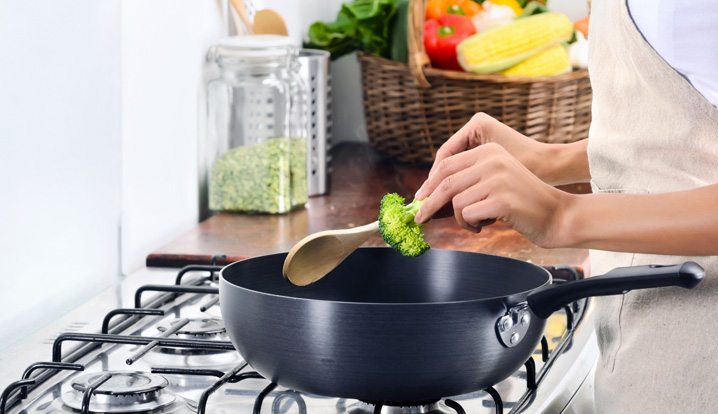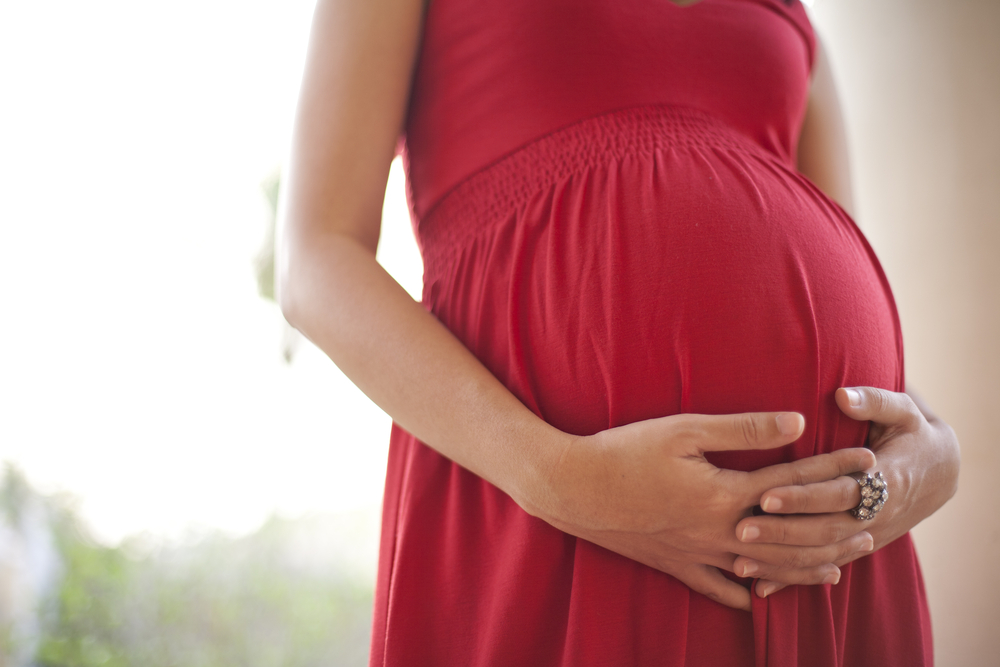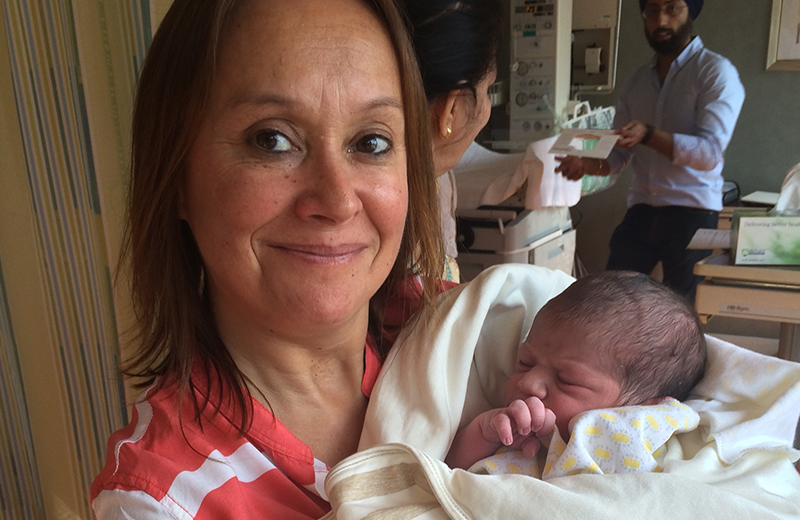After Delivery
Postpartum Weight Management

you've given birth to your beautiful baby and are enjoying the special bond of nursing. It’s impossible to get enough of those sweet cuddles! It’s also pretty exciting not to be carrying your third-trimester belly around anymore. Shedding all the extra weight of baby, fluid, and increased blood volume leaves you feeling pretty light in comparison to the last few months! And this might inspire you to push forward and count your calories, hit the gym, and get rid of those remaining pregnancy pounds. The only problem is you’re hungry all the time. And you’re tired from multiple night feedings. And you really can’t even think of leaving your little one long enough to get a workout in. Be encouraged, mama. There’s no rush to get back into tip-top shape. In fact, if you race ahead too quickly, you might sacrifice needed energy and rest, breast milk quality, and breast milk quantity. You need to take care of yourself, eat plenty of highly nutritious food, rest whenever possible, and enjoy a leisurely activity with your baby.
But how are you going to shed the extra weight you gained while pregnant?
Don’t worry. We have some tips. One of the best things you can do to shed extra softness is to breastfeed. Your body will burn an average of 500 extra calories a day just by nursing. It takes a lot of energy for your body to turn your nutrients into milk for your baby. You’ll be using up those pregnancy fat stores to produce rich, quality milk. Even with the added snacks and calories breastfeeding requires to keep you full and well nourished, it’s likely you’ll be feeling slimmer in just a week or two. Most weight loss associated with nursing happens during the first three months and continues at a steady rate until six months post-birth. If you’re breastfeeding your baby but not seeing a difference in your weight, it could have to do with your diet. Make sure you’re eating healthy, nutrient-rich foods to fuel you and your baby. Avoid fast food and desserts. But don’t sacrifice your health or your baby’s milk quality by starting a restrictive diet. A sudden, large drop in your caloric intake will negatively affect your milk production. Try these tips to stay healthy, lose pregnancy weight, and keep your milk quality and quantity high:
-
Do not skip meals.
Try having 5 to 6 small meals a day to make sure you’re not hungry at any time of the day. -
Limit foods high in trans fat and sugar:
Candy, chocolate, soft drinks, cakes, sweet biscuits, chips and fast food. -
Use healthy cooking methods
such as steaming, boiling, grilling and stir frying in healthy oils. -
Prepare a packed lunch or a variety of snacks
to have in a container beside you when breastfeeding. -
Prepare and freeze meals in advance when possible.
This will help you during times you’re too tired to prepare a healthy lunch or dinner. -
Keep nutritious, no-prep snacks on hand:
Fresh fruits, yogurt, nuts, seeds, dried fruits, breakfast cereals and milk. -
Make a written plan for the week’s healthy meals and snacks ahead of time.
This will save you time when you’re grocery shopping and cooking. It also ensures you are getting a variety of foods in your diet. -
Drink plenty of fluids, especially water.
-
Exercise gently but regularly.
Taking your baby for a morning walk is an excellent option.
The rate at which your pregnancy weight falls off depends on your body, your food choices, your activity level, and your metabolism. Most women can safely lose 1 pound each week by combining a healthy diet with moderate exercise. But remember—we don’t want to sacrifice energy or milk supply. Lose your pregnancy weight gradually. It took you nine months to carry your baby and put on your pregnancy pounds. Plan to take up to a year to get back to your pre-pregnancy weight, and don’t start any type of diet or regime for at least two months. If you're overweight or obese, you may be able to start losing weight earlier. Seek your doctor’s advice before starting any intense diet or fitness routine. And stay hydrated—dieters often reduce their water intake when eating less food.
Misconceptions
Breastfeeding moms need to wean their babies to lose weight. False.
Breastfeeding helps new moms heal from birth, provides baby with complete nutrition, and actually burns an average of 500 additional calories each day. Yes, you will be more hungry while breastfeeding, and you’ll need to eat more. But you have control over the snacks you choose to consume. Nursing doesn’t make you eat bad. Poor snacking choices result from being bored, housebound, anxious about the new addition, and excessively tired. Following a nutritious meal plan—combined with moderate exercise—helps improve breast milk quality, boosts energy levels, and stimulates gradual weight loss.
Types of Food
Protein, fresh vegetables, whole grains, dairy, and healthy fats make up a well-balanced diet for weight loss while breastfeeding. Options for protein sources include chicken, beef, lamb, fish, lentils, beans, and eggs. High-volume, low-calorie foods like popcorn and grapes can satisfy the urge to eat when mom feels bored or ravenous. These foods are filling and provide vitamins, minerals, and antioxidants to pass on to babies through breast milk.
Strategy
Breaking daily calorie allotments into 5 to 6 mini-meals throughout the day helps keep your metabolism revved up and constantly supplements milk supply. Eating every few hours also promotes stable blood sugar levels, leading to increased energy and an even temperament. Postnatal hormones provide enough fuel for irritability, so moms don’t need extreme hunger to contribute as well. A well-stocked pantry of healthy, convenient foods discourages tired moms from giving in to the urge to head to the drive-through. Try whole grain spaghetti with tomato sauce, deli turkey, whole grain cereal, and canned beans.
Warning
Restricting your caloric intake during the first six weeks postpartum could interfere with the establishment of mama’s milk supply and the ability to heal after childbirth. An occasional serving of fish is a smart protein choice. (Because mercury may be passed through breast milk, breastfeeding mothers should limit their intake of fish high in mercury, such as mackerel, swordfish and shark.) If you are losing too much weight while nursing, do not stop breastfeeding. Instead, find ways to eat more nutritious foods. Try these suggestions:
-
Don’t skip meals.
-
Have three main meals and three between-meal snacks.
-
Keep easy to prepare, nutritious snacks on hand (e.g. crisp-breads and cheese, fresh fruit, yoghurt, nuts, seeds, dried fruit, canned beans, flavored milk, fruit smoothies, breakfast cereals and milk).
Eat before you feel hungry, and never stop eating until you are fully satisfied.














